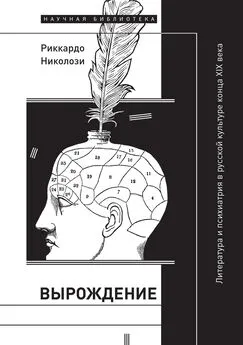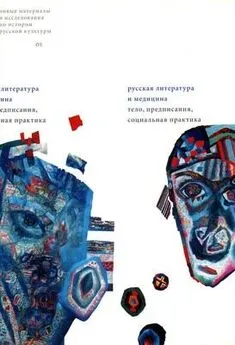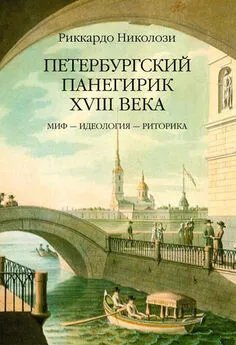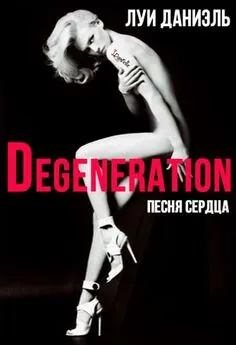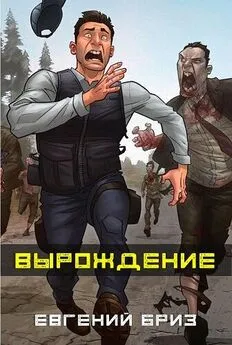Риккардо Николози - Вырождение
- Название:Вырождение
- Автор:
- Жанр:
- Издательство:Литагент НЛО
- Год:2019
- Город:Москва
- ISBN:978-5-4448-1087-3
- Рейтинг:
- Избранное:Добавить в избранное
-
Отзывы:
-
Ваша оценка:
Риккардо Николози - Вырождение краткое содержание
Вырождение - читать онлайн бесплатно ознакомительный отрывок
Интервал:
Закладка:
1108
Kleeberg B . Schlechte Angewohnheiten. Einleitung // Schlechte Angewohnheiten. Eine Anthologie 1750–1900 / Hg. von B. Kleeberg. Berlin, 2012. S. 9–63. S. 32.
1109
Sieferle . Bevölkerungswachstum und Naturhaushalt. S. 100.
1110
«Population, when unchecked, increases in a geometrical ratio. Subsistence increases only in an arithmetical ratio» ( Malthus Th. R . An Essay on the Principle of Population [1798]. London, 2007. P. 5).
1111
Мальтус различает «предупредительные препятствия» ( preventive checks ), такие как сознательное воздержание и позднее вступление в брак, и «безусловные препятствия» ( positive checks ), т. е. факторы, повышающие общий уровень смертности (Там же. P. 24).
1112
В своем трактате Мальтус не только стремится оправдать социальный статус-кво и опровергнуть социалистические утопии, но и критикует современные ему политические меры борьбы с нищетой ( Wrigley E. A. Poverty, Progress, and Population. Cambridge, 2004. P. 229–248).
1113
«By the law of our nature which makes food necessary to the life of man, the effects of these two unequal powers must be kept equal» ( Malthus . Principle of Population. P. 5).
1114
Там же. P. 18.
1115
Kleeberg . Schlechte Angewohnheiten. S. 33.
1116
«‹…› man ‹…› is inert, sluggish, and averse from labour, unless compelled by necessity» ( Malthus . Principle of Population. P. 140).
1117
Дарвин . Происхождение видов. С. 316. («A struggle for existence inevitably follows from the high rate at which all organic beings tend to increase. Every being, which during its natural lifetime produces several eggs or seeds, must suffer destruction during some period of its life, and during some season or occasional year, otherwise, on the principle of geometrical increase, its numbers would quickly become so inordinately great that no country could support the product. Hence, as more individuals are produced than can possibly survive, there must in every case be a struggle for existence, either one individual with another of the same species, or with the individuals of distinct species, or with the physical conditions of life. It is the doctrine of Malthus applied with manifold force to the whole animal and vegetable kingdoms ‹…›» – Darwin . The Origin of Species. P. 116–117.)
1118
Дарвин . Происхождение видов. С. 316. («I should premise that I use the term Struggle for Existence in a large and metaphorical sense, including dependence of one being on another, and including (which is more important) not only the life of the individual, but success in leaving progeny. Two canine animals in a time of dearth, may be truly said to struggle with each other which shall get food and live. But a plant on the edge of a desert is said to struggle for life against the drought, though more properly it should be said to be dependent on the moisture. A plant which annually produces a thousand seeds, of which on an average only one comes to maturity, may be more truly said to struggle with the plants of the same and other kinds which already clothe the ground. The missletoe is dependent on the apple and a few other trees, but can only in a far-fetched sense be said to struggle with these trees, for if too many of these parasites grow on the same tree, it will languish and die. But several seedling missletoes, growing close together on the same branch, may more truly be said to struggle with each other. As the missletoe is disseminated by birds, its existence depends on birds; and it may metaphorically be said to struggle with other fruit-bearing plants, in order to tempt birds to devour and thus disseminate its seeds rather than those of other plants. In these several senses, which pass into each other, I use for convenience sake the general term of Struggle for Existence» – Darwin . The Origin of Species. P. 116.)
1119
Дарвин . Происхождение видов. С. 326; Darwin . The Origin of Species. P. 129.
1120
Там же.
1121
Crook P. Darwin’s Coat-Tails. Essays on Social Darwinism. New York et al., 2007; The Reception of Charles Darwin in Europe. Vol. 1–2 / Ed. by E.-M. Engels and Th. F. Glick. London; New York, 2008.
1122
Todes D. P. Darwin Without Malthus. The Struggle for Existence in Russian Evolutionary Thought. New York; Oxford, 1989; Todes D. P. Darwins malthusische Metapher und russische Evolutionsvorstellungen // Die Rezeption von Evolutionstheorien im 19. Jahrhundert / Hg. von E.-M. Engels. Frankfurt a. M., 1995. S. 281–308. О восприятии учения Дарвина в России см., в частности: Vucinich A . Darwin in Russian Thought. Berkeley et al., 1988; Scudo F. M., Acanfora M . Darwin and Russian Evolutionary Biology // The Darwinian Heritage / Ed. by D. Kohn. Princeton, 1985. P. 731–754.
1123
Todes . Darwins malthusische Metapher. P. 284. См. также: Коростелев Г. М. и др. Критика мальтузианских и неомальтузианских взглядов. Россия XIX – начала XX в. М., 1978.
1124
Манн Ю . Русская философская эстетика. М., 1998. С. 152–199.
1125
Одоевский В. Ф. Сочинения: В 2 т. Т. 1. М., 1981. С. 49.
1126
Там же. С. 48.
1127
«La commune rurale russe ‹…› est l’antithèse parfaite de la célèbre proposition de Malthus: elle laisse chacun sans exception prendre place à sa table» ( Герцен А. И. La Russie [1849] // Герцен А. И. Собрание сочинений: В 30 т. Т. 6. М., 1955. С. 150–186. С. 163). Герцен отсылает здесь к мальтузианской метафоре природы как праздничного стола, накрытого не на всех. Ср. также критику английского мыслителя со стороны Льва Толстого, в чьем трактате «Так что же нам делать?» (1889) Мальтус назван «весьма плох[им] английск[им] публицист[ом]», который, пользуясь «математическими, ни на чем не основанными формулами», установил «мнимый» «закон несоразмерного со средствами питания увеличения населения» ( Толстой Л. Н. Так что же нам делать? // Толстой Л. Н. Полное собрание сочинений. Т. 25 (Произведения 1880‐х годов). М., 1937. С. 333). Ср. также толстовскую критику концепции борьбы за существование как социал-дарвинистской теоремы в «Анне Карениной» (часть 5, гл. IX; часть 7, гл. XXX; часть 8, гл. XII).
1128
Сыграл свою роль и тот факт, что с сочинением Дарвина русские читатели впервые познакомились в немецком переводе Генриха Г. Бронна (1860), переведшего struggle for existence как Kampf um’s Daseyn ( Кольчинский Э. И. Биология Германии и России-СССР в условиях социально-политических кризисов первой половины XX века (между либерализмом, коммунизмом и национал-социализмом). СПб., 2006. С. 179).
1129
Чернышевский Н. Г. Полное собрание сочинений: В 15 т. Т. XIV. Письма 1838–1876 годов. М., 1949. С. 639.
1130
Todes . Darwins malthusische Metapher. S. 288.
1131
Подробнее об этих теориях см. в: Todes . Darwin Without Malthus. P. 45–122.
1132
«‹…› so long as the natural man increases and multiplies without restraint, so long will peace and industry not only permit, but they will necessitate, a struggle for existence as sharp as any that ever went on under the régime of war» ( Huxley Th. H . The Struggle for Existence: a Programme // The Nineteenth Century. 1888. № 132/23. P. 161–180. P. 168).
1133
Кропоткин П. А. Взаимная помощь как фактор эволюции / Пер. с англ. В. Батуринского под ред. автора. СПб., 1907. С. 294.
1134
Там же. С. 14.
1135
В этом вопросе Кропоткин может ссылаться на Дарвина, подробно рассматривающего «общительность» ( sociability ) у животных и у людей в «Происхождении человека» (Там же. С. 18; Дарвин Ч . Происхождение человека и половой отбор // Дарвин Ч. Сочинения: В 9 т. Т. 5. Происхождение человека и половой отбор. Выражение эмоций у человека и животных / Под ред. Е. Н. Павловского. М., 1953. С. 133–656. С. 217–238 ( Darwin Ch . The Descent of Man, and Selection in Relation to Sex [1871]. London, 2004. P. 123–144)).
1136
Todes . Darwin Without Malthus. P. 136. Тодес также объясняет, каким образом эта проблема привела теоретиков взаимной помощи к созданию неоламаркистского варианта эволюционной теории, отводящего главную роль непосредственному влиянию среды на организмы и наследованию приобретенных признаков.
1137
Крафт-Эбинг Р. ф . Наш нервный век. Популярное сочинение. О здоровых и больных нервах / Пер. с нем. СПб., 1885. С. 8–9. («Racen– und Klassenhass, Elend und Siechthum, eitles Ringen nach materiellem Vorteil, unter Abnutzung der edelsten Kräfte des Geistes und Körpers bis zur Erschöpfung ‹…› werden indessen die Menschheit dezimieren und unglücklich machen. Kampf ums Dasein heißt das Schlagwort unserer modernen Civilisation. Die Ursachen dieses Kampfes liegen wesentlich in dem abnormen, weil den Gesetzen der Natur nicht entsprechenden Dasein». – Krafft-Ebing R. v . Über gesunde und kranke Nerven. 4. Aufl. Tübingen, 1898. S. 8–9.)
Читать дальшеИнтервал:
Закладка:
